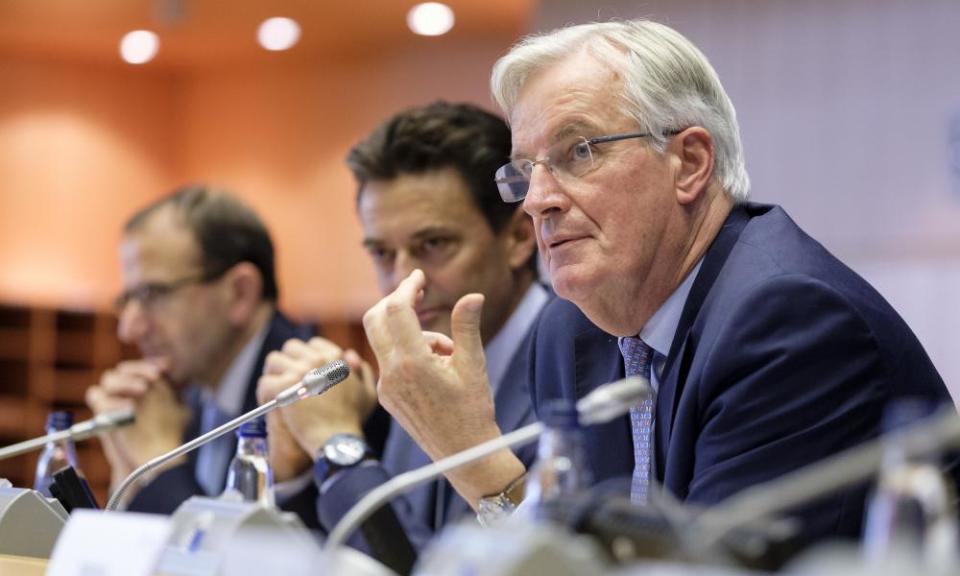EU distances itself from Johnson’s timetable for post-Brexit trade deal

EU member states have signalled a refusal to be bounced into Boris Johnson’s fast-track timetable to strike a post-Brexit trade deal.
If he wins a majority, the prime minister has vowed to take the UK out of the EU on 31 January and agree a trade deal with the bloc within 11 months, an unprecedentedly short time for such a complex negotiation.
Johnson, who has built his election campaign around the misleading slogan “Get Brexit done”, has promised not to extend the 11-month transition period, seen by many as far too short to agree a future relationship with the EU.
EU leaders will promise to move “swiftly” to the next phase of UK negotiations, according to a leaked version of their communique to be adopted at a summit next Friday – the day after the general election.
But a reference to “making the best possible use of the limited time available” that was contained in an earlier version of the text has been dropped. EU ambassadors preparing the document have serious doubts about the 11-month timetable and opposed sending this positive signal to Johnson.
The EU’s chief negotiator, Michel Barnier, has said it would be possible to negotiate a basic free-trade deal with the UK in 11 months. Others are more sceptical, with one senior diplomat saying he could not imagine it in his wildest dreams.
Some diplomats are counting on Johnson to abandon his principles, encouraged by earlier U-turns, such as his broken promise to the Democratic Unionist party not to have a border in the Irish Sea, as well as his “do or die” pledge to leave the EU on 31 October.
“Of course Boris said he would rather die in a ditch; he didn’t die in a ditch, but he accepted to go beyond 31 October,” said one senior EU diplomat. “It is not unlikely that there could be an extension of the transition period.”
The diplomat added that Johnson had proved “more pragmatic than anyone expected”.
The UK can extend the Brexit transition period once for one or two years, but must agree this extension with the EU before 1 July 2020.
The latest EU text also has a reference to “the level playing field”, meaning the UK must respect core EU standards on workers’ rights, state aid, and environmental and consumer protection, to reach a deal ensuring zero tariffs and zero quotas on British goods.
The document, which may change again, is to be adopted by EU leaders at the summit in Brussels on 13 December.
The EU’s default scenario is a Johnson victory, but officials have also discussed how to respond to Jeremy Corbyn in No 10, which is seen as less likely.
The Labour leader has pledged to “get Brexit sorted” by negotiating a new deal with the EU in three months and organising a referendum within six. While EU sources see the Corbyn renegotiation timetable as doable, one former government adviser has said it “seems almost impossible” to organise a referendum in six months.
Corbyn’s pledge to remain neutral in any referendum on his revised deal “does not do much for his credibility”, the diplomat said. Nonetheless, sources say the EU would engage with a potential prime minister Corbyn, once his government filed a request to delay Brexit and revealed details of its renegotiation plan.
The Liberal Democrat MEP Luisa Porritt said: “This leak shows that, under Boris Johnson, Brexit negotiations are set to drag on and on. The chances of a no-deal Brexit at the end of 2020 are increasing dramatically.
“Unlike Boris Johnson, other European leaders are being honest about how long a free-trade negotiation takes.”

 Yahoo News
Yahoo News 